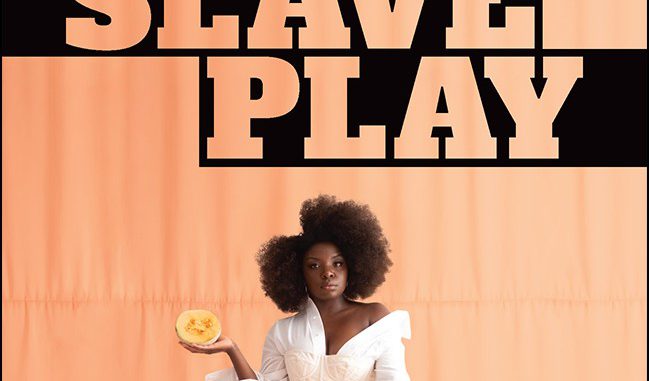
People say that Broadway is dead — a bedazzled tourist trap surrounded by millions of obnoxious billboards and billions of skeezy fortysomethings in Elmo costumes. These people clearly have not seen Jeremy O. Harris’s “Slave Play,” currently playing at the John Golden Theater. It may be showing on the same block as the interminable “Phantom of the Opera,” but don’t be fooled: if the provocative title didn’t clue you in, this play is definitely not your typical Broadway fare. It may be playing across the street from “Ain’t Too Proud to Beg,” but in the world of “Slave Play,” our cast ain’t too proud to beg master to whip them harder.
The play seemingly opens on a plantation in the antebellum south, where white overseers are getting nasty with their black slaves – in both senses of the word. But something’s not right here. Those Southern accents are a little too broad, for one. And there are Rihanna lyrics superimposed above the stage. And, um, that “authentic Negro spiritual” they’re playing sounds an awful lot like Ginuwine’s immortal 90s sex jam “Pony.” What the hell is going on here?
But then the facade breaks, and we’re told exactly what’s going on here: we’re at a couples retreat! Sort of. This trio of interracial couples are on day four of an experimental treatment called “antebellum sexual performance therapy,” meant to cure their flagging sex lives. They theorize that the legacy of slavery has left African-Americans with a disorder that saps their sexual drive. In other words, as one of the therapees asks: “so the reason I don’t come is because, like, racism?”
There’s certainly a whiff of satire in “Slave Play,” especially at the expense of uh, “academic” types (no surprise there — the playwright, and half the cast, are Yalies) and white liberals (the biggest laugh line of the evening is arguably, “I read about it in The New Yorker!”) But it also does want to make a serious point about intimate relationships, and America’s dark history of race, and the intersection of the two. And surprisingly, it doesn’t make that point at the expense of character. Yes, the play leans pretty heavily on stereotypes, but the characters are both vivid and well-developed, with believable neuroses. There are laughs to be had, but “Slave Play” very clearly delineates when the audience is supposed to laugh and when they’re supposed to feel for the characters.
By the end of the play, we get a glimpse into every character’s mind with a powerful monologue, which could be tiring if Harris didn’t have a gift with words. (This play is a godsend for actors looking for audition pieces.) But the writing gets to the heartbreaking center of these problems and their histories in a meaningful and productive way. White theatergoers may be a little uncomfortable how much of themselves they see in the play, which is sort of the point — but they’ll be uncomfortable in all the most important ways.
If there’s a problem with the play, it’s a structural one: all the ambitious aspects of the staging are condensed into the first thirty minutes of the play. The play then tries to totally strip itself bare in the second act, but instead it ends up losing the bizarre flourishes that made the first thirty minutes so interesting while keeping the most overtly literal “avant-garde” elements. (Yes, we got that we were supposed to “get a good look” of ourselves and our role in the tapestry of American race relations; did we really need the back wall of the set to be a giant mirror to get that?) But “Slave Play” largely succeeds at what it sets out to do. Just, maybe don’t bring your mom along for the ride?
